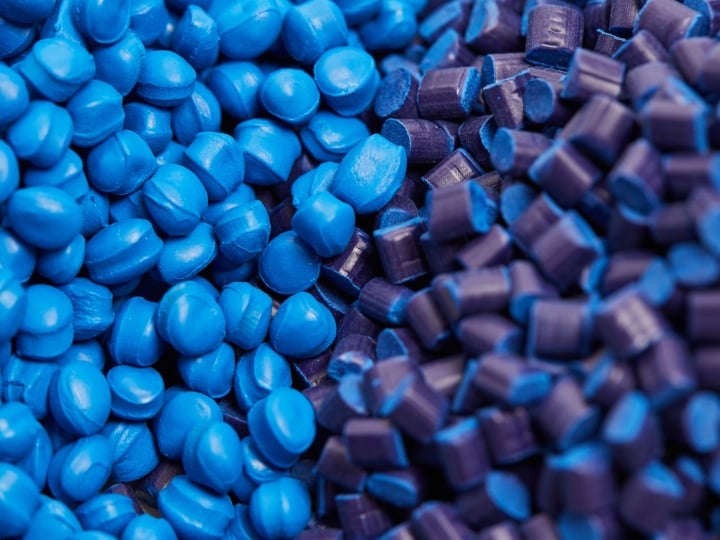Taber Abrasion ASTM D1044 (Haze), ASTM D4060 (Weight Loss)
Scope:
Taber abrasion is a test to determine a plastic's resistance to abrasion. Resistance to abrasion is defined as the ability of a material to withstand mechanical action such as rubbing, scraping, or erosion. Abrasion can be difficult to compare but haze variation or weight loss are often evaluated.
Test Procedure:
The haze or original weight of test specimen is measured. The test specimen is then placed on the abrasion tester. A 250, 500, or 1000-gram load is placed on top of the abrader wheel and allowed to spin for a specified number of revolutions. Different abrading wheels are specified. A haze measurement or final weight is taken. The load and wheel can be adjusted for softer and harder materials.
Specimen size:
4-inch diameter disk or 4 sq. inch plate
A ¼ inch diameter hole in center is required.
Data:
Results are expressed by changes in % haze or in weight loss in mg/# of cycles.
**Please note that this test description is intentionally generic in nature and aimed at providing a descriptive summary to enhance test understanding. Standards can be obtained from appropriate standard authorities.
Related Services:
Polymers and Plastics

Polymers News and Events
Meet our team at K2025 Reach out now
LEARN how CircularAssure helps you to close the loop in the circular economy for plastics
TECHNICAL TALK: Circularity - Addressing Challenges in Material Development through Evaluation Programs
WHITE PAPER: Quality Assurance Strategies for Recycled Plastics
WHITE PAPER: Materials Characterisation for the Automotive Supply Chain
BROCHURE: Injection Moulding Test Specimen Production Catalogue
ARTICLE: Processability and evaluation programmes for recycled plastic materials
ARTICLE: Adhesives Quality Assurance Testing Programs
CASE STUDY: Polymer Surface Contamination Resolution
CASE STUDY: Elastomer Seal Material Failure
CASE STUDY: Polymer Failure - Distribution and Dispersion of Fillers
